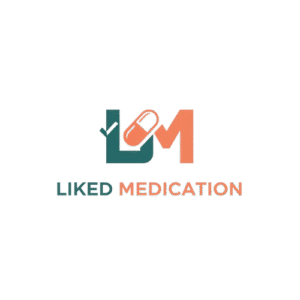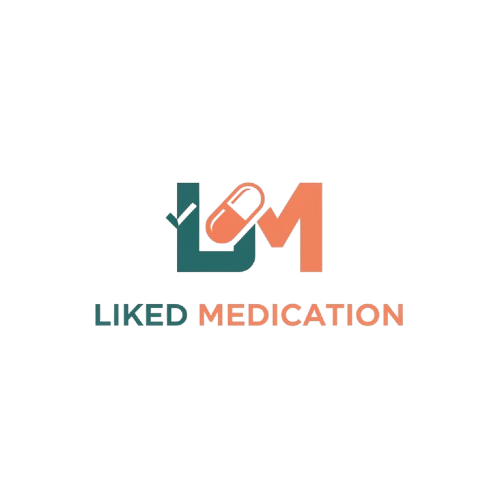Herbal Medicine A Natural Path to Better Health
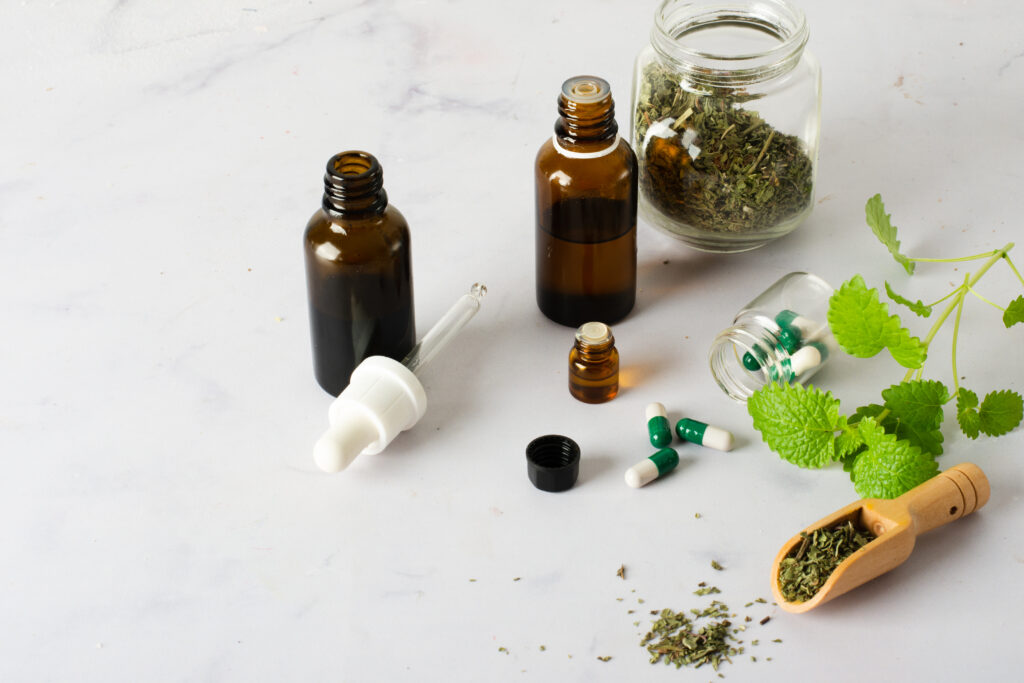
Herbal medicine has been used for thousands of years in cultures around the world. In recent years, more people are turning to natural remedies as an alternative or complement to modern medicine. This article explores what herbal medicine is, its benefits, popular herbs, how to use them safely, and important precautions. What is Herbal Medicine? Herbal medicine is the use of plants or plant extracts to treat illnesses, support the body’s healing, or improve general wellness. Also known as botanical medicine or phytotherapy, herbal medicine can be used in the form of teas, capsules, oils, creams, or tinctures. Unlike synthetic drugs, herbal remedies are made from natural ingredients and are often seen as a gentler way to manage health conditions. However, that doesn’t mean they are risk-free. Benefits of Herbal Medicine Many people choose herbal medicine for its natural healing qualities and fewer side effects compared to pharmaceutical drugs. Here are some common benefits: Natural Healing Herbs work in harmony with the body. They can support the immune system, help reduce stress, and promote faster recovery. Fewer Side Effects When used correctly, herbal remedies often have fewer side effects than prescription medications. Long-Term Wellness Herbal medicine focuses on treating the root cause of illness, not just symptoms. This approach promotes long-term balance and health. Affordable and Accessible Herbal remedies can be more affordable and easier to access, especially for people in rural areas or those without health insurance. Popular Herbs and Their Uses Many herbs are used daily by people around the world for health support. Below are some of the most popular and their common benefits: Ginger Uses: Nausea, digestion, inflammation Form: Tea, capsules, fresh root Turmeric Uses: Joint pain, inflammation, skin issues Form: Powder, capsules, paste Echinacea Uses: Boosts immune system, fights colds Form: Tea, tincture, capsules Garlic Uses: Heart health, immune support, antibacterial Form: Raw, capsules, oil Chamomile Uses: Sleep aid, reduces anxiety, helps digestion Form: Tea, oil, capsules Peppermint Uses: Headaches, digestive problems Form: Tea, essential oil How to Use Herbal Medicine Safely Herbal medicine is powerful and must be used responsibly. Here are some safety tips: Consult a Healthcare Provider Before starting any herbal treatment, talk to a doctor or licensed herbalist—especially if you’re taking prescription medications, pregnant, or breastfeeding. Start Small Begin with a small dose and watch how your body reacts. Everyone is different. Buy from Trusted Sources Purchase herbs from reliable brands or herbal shops that follow quality and safety standards. Don’t Mix Without Knowledge Some herbs can interact negatively with medicines or other herbs. Never mix remedies unless guided by a professional. Are Herbal Medicines Backed by Science? Many herbs have been studied and supported by scientific research. For example, turmeric’s active ingredient, curcumin, has been proven to have anti-inflammatory effects. Ginger has also shown benefits for nausea in pregnancy and chemotherapy patients. Still, not all herbal claims are backed by strong scientific evidence. That’s why research and guidance are important before starting herbal treatments. Precautions and Side Effects Even though herbal medicine is natural, it can still cause side effects. Here are a few to watch out for: Allergic reactions Upset stomach Skin rashes Drowsiness or insomnia (depending on the herb) Interactions with other medications Always follow the correct dosage and instructions. Stop use immediately if you notice any unusual symptoms. FAQs About Herbal Medicine Is herbal medicine safe? Yes, when used properly and under professional guidance. However, herbs can interact with medications or cause side effects. Can children use herbal remedies? Some herbs are safe for children, but always consult a pediatrician or herbal specialist first. How long does it take for herbal medicine to work? Results vary. Some people notice changes within days, while others may need weeks or months. Can I use herbal medicine with my regular medicine? In some cases, yes. But it’s crucial to check for interactions with your doctor before combining treatments. Where can I buy herbal medicine? You can find herbal products at health stores, pharmacies, or online. Always choose reputable brands. Final Thoughts Herbal medicine offers a gentle, natural option for improving health and well-being. While it can be effective, it’s not a cure-all. Always combine herbal use with a healthy lifestyle, and consult professionals when needed. Remember, nature provides many healing tools, but safety, knowledge, and balance are key. Health Disclaimer: This article is for informational purposes only. It is not intended to diagnose, treat, cure, or prevent any disease. Always seek the advice of your physician or qualified health provider with any questions you may have regarding a medical condition or before starting any herbal treatments.
What Is Kaan Herbal Medicine? 10 Natural Healing Facts
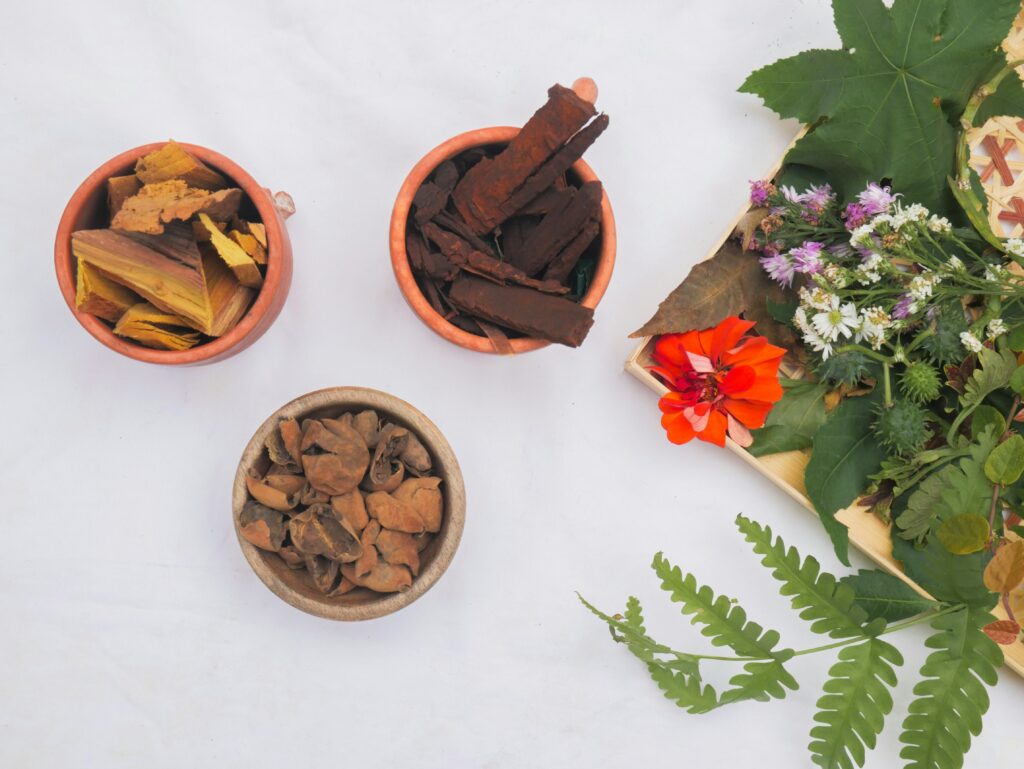
What Is Kaan Herbal Medicine? Discover the Healing Power of Nature – 10 Essential Facts You Need to Know Introduction to Kaan Herbal Medicine In recent years, natural wellness solutions have experienced a massive resurgence. As more people look for safer, holistic approaches to health, Kaan Herbal Medicine stands out as a powerful solution rooted in tradition and enhanced by nature. But what exactly is Kaan Herbal Medicine, and why is it gaining popularity? Kaan Herbal Medicine refers to a line of natural health products and healing remedies developed using ancient herbal practices. With the use of native herbs, plants, roots, and botanicals, Kaan herbal products focus on restoring balance to the body and boosting natural healing without chemical interference. In this article, we’ll explore everything you need to know about Kaan herbal medicine — from its traditional roots to its modern applications. The Origins of Herbal Medicine Herbal medicine isn’t new. In fact, it’s one of the oldest systems of healing, with evidence tracing back thousands of years in African, Asian, and Middle Eastern cultures. Traditional Roots of Kaan Herbal Practices Kaan Herbal Medicine draws from traditional African and Middle Eastern herbal systems, combining ancient wisdom with modern research. Its formulations often include locally sourced herbs like: Neem Moringa Ginger Aloe Vera Black Seed (Nigella Sativa) These ingredients are carefully blended using time-honored techniques to ensure potency and effectiveness. What Makes Kaan Herbal Medicine Unique? While many herbal products flood the market today, Kaan Herbal Medicine differentiates itself through authenticity, sustainability, and a strict adherence to tradition. Core Ingredients Used The power of Kaan herbal medicine lies in its ingredients. Each herb is chosen for a specific purpose: Herb Benefit Neem Antibacterial, blood purifier Moringa High in antioxidants, anti-inflammatory Aloe Vera Gut health, skin healing Ginger Digestive aid, pain relief Black Seed Immune booster, anti-microbial These herbs are often used in combinations that synergize their effects. Traditional Preparation Techniques Kaan herbalists rely on slow extraction, fermentation, sun drying, and cold-press methods to preserve the full spectrum of nutrients and bioactive compounds. Unlike mass-produced supplements, the preparation respects the natural cycle of each plant. The Health Benefits of Kaan Herbal Medicine The benefits of herbal medicine extend across the body. Kaan products are especially known for enhancing natural healing without side effects. Digestive Health Many Kaan formulations help regulate digestion, reduce bloating, and support gut microbiota. Ginger, Aloe, and Moringa are key players here. Immune Support Black Seed and Neem are natural immunity boosters. They help the body fight infections, detox the blood, and reduce inflammation. Skin and Hair Health Kaan topical solutions and ingestibles promote glowing skin and healthy hair by reducing toxins and nourishing the skin from within. Scientific Backing Behind Herbal Medicine While Kaan Herbal Medicine is deeply traditional, modern science is beginning to support its claims. Multiple studies have confirmed the antibacterial, anti-inflammatory, and immune-regulating effects of ingredients like: Nigella Sativa (Black Seed) – shown to reduce asthma symptoms and boost immunity. Moringa – high in antioxidants, vitamins, and has tumor-suppressing potential. Neem – widely studied for antibacterial and anti-diabetic effects. These findings validate what traditional practitioners have known for centuries. How Kaan Herbal Medicine Is Made Sourcing and Sustainability Kaan products are sourced from organic farms where herbs are grown without pesticides or synthetic fertilizers. Sustainability is a core principle — only renewable parts of plants are harvested. Processing and Packaging After harvesting, herbs undergo quality testing, are dried naturally, and processed using eco-friendly methods. The packaging is biodegradable and protects the potency of the herbal medicine inside. How to Use Kaan Herbal Medicine Safely Just because something is natural doesn’t mean it’s always safe — dosage and preparation matter. Dosage Guidelines Follow product labels or consult a certified herbalist. Most Kaan herbal teas, capsules, or tinctures are designed for daily use in small amounts (e.g., 1-2 teaspoons or 1 capsule). Potential Side Effects Though rare, some herbs can interact with medications or cause allergies. Common precautions: Avoid mixing with prescription drugs without medical advice. Pregnant women should consult a doctor before use. Start with low doses to test tolerance. Who Can Benefit from Kaan Herbal Medicine? Kaan Herbal Medicine is ideal for: Individuals seeking natural healing People with chronic conditions like arthritis or IBS Those aiming to detox their body Anyone looking for chemical-free skin and hair care It’s also suitable for vegetarians and those with food sensitivities. Where to Buy Authentic Kaan Herbal Products To avoid counterfeit products, always purchase from: Official Kaan Herbal Medicine websites Authorized herbal clinics Reputable health stores Check for certifications, ingredient transparency, and user reviews before buying. Real User Experiences and Testimonials After using Kaan Herbal Medicine for three months, my digestion improved drastically. I feel more energetic and less dependent on over-the-counter meds.”Asha M., Nairobi The black seed oil from Kaan helped my eczema clear up after years of struggling with creams Yusuf D., Minneapolis Testimonials like these highlight how natural remedies, when properly made, can have profound results. Comparing Kaan Herbal Medicine with Modern Pharmaceuticals Feature Kaan Herbal Medicine Modern Pharmaceuticals Source Natural herbs Synthetic chemicals Side Effects Minimal (if any) Often significant Cost Affordable Can be expensive Long-Term Use Safe Sometimes harmful Healing Style Holistic Symptom-based Kaan herbal products focus on the root cause of illness rather than just treating symptoms. FAQs About Kaan Herbal Medicine 1. What is Kaan Herbal Medicine made of? It’s made from herbs like Neem, Moringa, Ginger, and Black Seed, using traditional preparation techniques. 2. Is it safe for children? Most Kaan products are adult-focused. Always consult a pediatric herbalist before giving to children. 3. Can I use it with other medications? Yes, but it’s best to speak with your doctor to avoid interactions. 4. How long does it take to see results? Some users report improvements within a week, while others may need several weeks of consistent use. 5. Where can I find more scientific research? Visit NCBI to explore peer-reviewed studies on herbal medicine. 6. Does Kaan
What is Kaan Herbal Medicine?
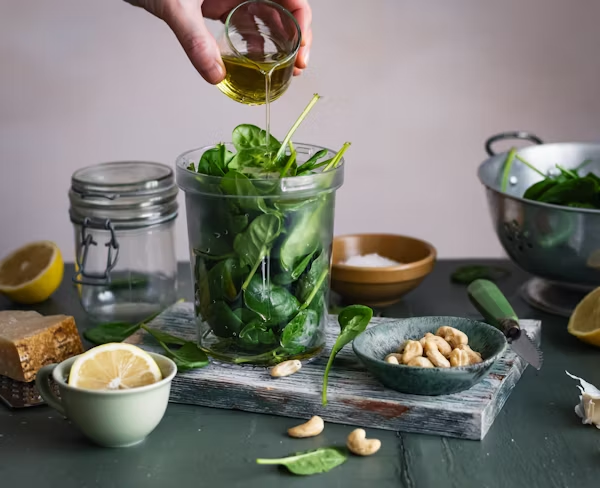
What is Kaan Herbal Medicine? A Deep Dive into Natural Healing and Traditional Wisdom In a world dominated by modern pharmaceuticals, hospitals, and high-tech diagnostics, the ancient art of herbal medicine still holds a powerful place in many cultures. In Somalia and other parts of East Africa, one of the most respected names in this space is Kaan Herbal Medicine, a center known for its traditional healing techniques and effective herbal remedies. But what exactly is Kaan Herbal Medicine? How does it work? And why are so many people turning back to natural healing methods? This article explores Kaan Herbal Medicine in detail — its origins, the philosophy behind it, the conditions it treats, and the growing trust it has gained among thousands of patients. Whether you’re new to herbal medicine or looking for alternative health solutions, this guide will provide valuable insight into one of the most respected traditional healing systems in the region. The Origins of Kaan Herbal Medicine Kaan Herbal Medicine is a traditional healing center founded on indigenous Somali wisdom, passed down through generations. At the heart of Kaan’s practice is Baan Rabaa, a renowned traditional healer whose name has become synonymous with trust and effective care in natural medicine. Unlike pharmaceutical clinics that rely on synthetic drugs, Kaan Herbal Medicine uses plants, roots, seeds, and natural oils to restore health and balance in the body. These remedies are derived from centuries of local knowledge about the healing properties of Somali herbs and plants. Herbal medicine is not just a collection of old remedies; it is a philosophy. At Kaan, every treatment is based on the belief that the human body can heal itself when supported by the right natural tools. The Philosophy Behind Herbal Medicine Kaan Herbal Medicine follows a holistic approach. Instead of treating only symptoms, herbal medicine focuses on the whole person—physical, emotional, and spiritual. Practitioners like Baan Rabaa aim to find the root cause of illness and restore the body’s natural balance. This approach is based on the understanding that nature offers everything we need to heal. From digestive herbs to detoxifying roots and immune-boosting leaves, herbal medicine is built on the gifts of the Earth. Unlike modern drugs that often cause side effects, herbal medicine is gentle and usually safer for long-term use. Kaan Herbal Medicine uses carefully prepared natural treatments that respect both the body and the environment. What Conditions Does Kaan Herbal Medicine Treat? Kaan Herbal Medicine has become a go-to solution for individuals seeking relief from chronic, hard-to-treat, or recurring health problems. The center has helped thousands of patients with conditions such as: Digestive issues (gas, ulcers, constipation, diarrhea) Joint and bone pain (arthritis, back pain, neck stiffness) Skin disorders (eczema, acne, rashes, discoloration) Hair loss and scalp problems Infertility and reproductive health issues in both men and women High blood pressure and diabetes Chronic fatigue and low energy Stress, anxiety, and insomnia All these are treated with custom-formulated herbal remedies that contain no artificial chemicals or preservatives. Each treatment is tailored to the patient, based on traditional diagnostic methods and the healer’s experience. How Herbal Medicine Works at Kaan The process begins with a consultation. Patients share their symptoms, medical history, and lifestyle. Then, a personalized treatment plan is developed using specific herbs, teas, oils, or powders. The herbs used are locally sourced and sometimes imported from other regions known for high-quality medicinal plants. Some of the most commonly used ingredients include: Aloe Vera – for skin conditions and digestion Neem leaves – for blood purification and immunity Fenugreek – to regulate blood sugar Black seed (Nigella sativa) – for general healing Ginger and turmeric – for inflammation and joint pain These herbs are combined based on traditional formulas known to produce results. The key difference between herbal medicine and pharmaceutical drugs is that herbal treatments aim to support the body’s healing process, not override it. Why People Choose Kaan Herbal Medicine There are many reasons why people are increasingly turning to Kaan Herbal Medicine over hospitals and clinics: Natural and Chemical-FreeMany are tired of taking pills with long lists of side effects. Herbal medicine offers a clean, organic alternative that doesn’t pollute the body with toxins. Affordable TreatmentHerbal remedies are often cheaper than pharmaceutical treatments, especially for chronic conditions. Trusted by ThousandsWord of mouth is powerful in Somalia. Kaan Herbal Medicine has earned the trust of thousands of people who have seen real results after years of failed treatments elsewhere. Cultural ConnectionFor many, herbal medicine is part of their identity and heritage. Choosing Kaan is not just about healing—it’s about reconnecting with traditional roots. Long-Term ReliefWhile modern drugs may offer fast relief, they often don’t address the root cause. Herbal medicine provides gradual but lasting healing. Baan Rabaa: The Man Behind the Mission At the center of it all is Baan Rabaa, a highly respected traditional healer. His knowledge of herbal medicine comes from both family heritage and decades of personal practice. He has become a symbol of hope for many people suffering from conditions modern doctors struggle to treat. Baan Rabaa doesn’t just give medicine — he listens, advises, and builds relationships with his patients. His dedication has earned him deep respect in both urban and rural communities. Kan Herb Company | Chinese Herbal Products You Can Trust Herbal Medicine in a Modern World Kaan Herbal Medicine proves that traditional healing still has a place in today’s fast-moving, modern world. As interest in natural health and organic remedies grows globally, Kaan stands as a successful model of how traditional medicine can coexist with modern lifestyles. In fact, many patients now use herbal medicine alongside modern treatments, creating a complementary approach that improves their quality of life. Precautions and
